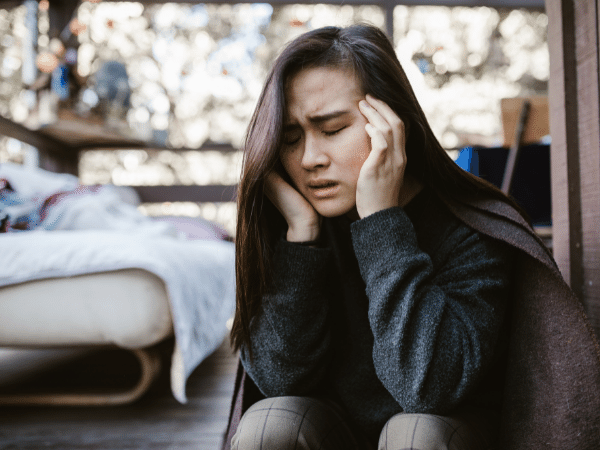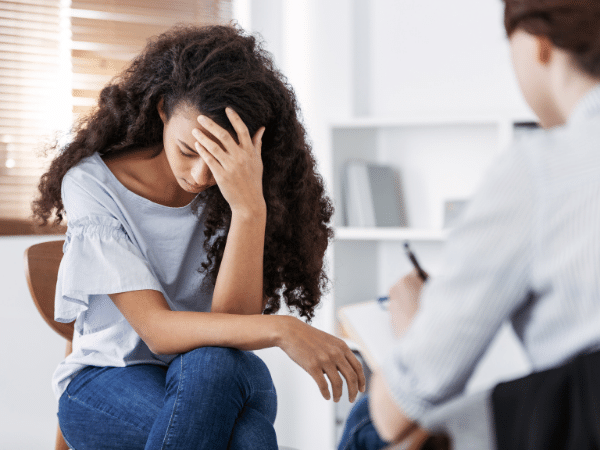A lot of people find it difficult to adjust to everyday life after experiencing or witnessing a traumatic event. This trauma can cause problems to the person and can manifest in different ways. People who have Post-traumatic Stress Disorder (PTSD) or survivor’s guilt may be triggered by many things, making breakdowns hard to predict or prevent.
Living with a loved one that experiences guilt or PTSD is challenging. A lot of times, the PTSD survivor may cause stress to those around them without them knowing. It’s important to understand that they don’t mean to be a burden when they are under stress.
What Exactly is PTSD?
When one experiences a traumatic experience, the body’s defenses take effect and undergo a physical change. This change causes a fight or flight response in the body, which manifests in different physical symptoms such as:
- Raised blood pressure
- High heart rate
- Profused sweating
- Loss of appetite or stomach-churning
The survivor may feel a variety of emotions afterward. They may be in shock, in denial, or experience other feelings like rage, depression, or guilt. Many people recover as time passes after the traumatic event. However, if these feelings persist inside the person, they may have developed PTSD.

Post-traumatic Stress Disorder is an anxiety disorder that develops after the survivor experiences or witnesses a terrifying event. These traumatic events may include physical abuse, natural or man-made disasters, accidents, or military combat.
PTSD can last years after the traumatic experience. They may have recurring nightmares or flashbacks about the ordeal and react violently. Regular events can trigger PTSD survivors unknowingly, which can cause sudden panic attacks.
PTSD Symptoms
Post-traumatic Stress Disorder symptoms may start within a month of an ordeal. However, it is not uncommon for these symptoms to manifest even years after the trauma.
PTSD symptoms are categorized into four main types: intrusive memories, avoidance, negative changes in thinking and mood, and changes in reactions. These symptoms can vary in intensity and duration, depending on the person.
Here are several examples of different types of PTSD symptoms.
Intrusive Memories
- Recurrent and spontaneous distressing memories of the ordeal
- Flashbacks of the traumatic event
- Unsettling dreams or nightmares about the event
- Severe emotional or physical distress to things that remind the event
Avoidance
- Trying to avoid thoughts about the event
- Avoiding talking about the event
- Avoiding places, people, or activities that remind the vent
Negative Changes in Thinking and Mood
- Negative thoughts about the world
- Hopelessness about the future
- Memory problems
- Difficulty maintaining close relationships
- Detachment from friends and family
- Lack of interest in things that were once enjoyable
- Emotional numbness
- Difficulty in feeling positive emotions
- Low self-worth
Changes in Reactions (Physical or Emotional)
- Easily startled or surprised.
- Constantly on guard or cautious
- Self-destructive behavior
- Difficulty sleeping
- Difficulty in focusing
- Irritability
- Aggressive behavior
- Overwhelming shame or guilt
For younger children, they can show the symptoms in different ways.
- Re-enacting the experience through play
- Frightening dreams that may or may not include parts of the event

The number and intensity of symptoms present may vary over time. Generally, when a person is under a lot of stress, more symptoms will manifest.
What is Survivor’s Guilt?
Survivor’s Guilt is a common symptom of PTSD. It develops when a person feels guilty for surviving a life-threatening situation while others did not. This often happens to soldiers who survived war combat but can develop in other people as well.
Survivors often question why they get to live while others didn’t. Oftentimes they contemplate about what they could have done differently in that situation, how they could have saved their friends or family, or how they could have stopped whoever it was that caused that trauma.
Survivor’s guilt was once its own diagnosis but is now considered a significant symptom of PTSD by mental health professionals.
Survivor’s guilt can happen to a lot of people. These may include but are not limited to:
- War veterans
- Holocaust survivors
- Cancer survivors
- Transplant recipients
- Crash survivors
- Disaster survivors
- Family of terminally ill patients
- Parents who outlive their child
- Family members of those who committed suicide
People who experience survivor’s guilt likely hold false beliefs. Usually, they feel like they could have predicted the event, played a role in the event’s negative outcome, or felt like they did something wrong to worsen the outcome. These beliefs worsen the feeling of guilt and increase the severity of other PTSD symptoms.
How to Cope With Survivor’s Guilt or PTSD
Research shows that many people recover from PTSD and Survivor’s Guilt without treatment within the first year after the event. However, about one in three survivors continue to have PTSD for three years or beyond.

If you or a loved one struggles with PTSD or survivor’s guilt, you may want to employ the following tips to cope with their condition.
Try to Overcome Helplessness
Recovering from a traumatic event does not happen overnight. It is a gradual process that may take a while, but there should be no rush in the recovery process. Overcoming the feeling of helplessness is crucial in lessening anxiety, fear, and other residual symptoms of the condition.
Overcoming trauma starts with your willingness to move on from your memory. It’s essential to be honest with yourself. You should learn to accept the feelings, grief, guilt, fear, and loss from the trauma. Denying your emotions will only cause them to bottle up and worsen your feelings.
The process of recovery does not stop with just accepting what happened. From there, you should accept that you can move on from this trauma. You can channel your emotions into helping others. By connecting with other survivors, you can help each other find meaningful activities.
Your trauma does not define your being, and the best way to honor those who didn’t survive is to help prevent the trauma from happening to others.
Live a Healthy and Active Lifestyle
Exercise is proven to release endorphins and improve your overall mood and outlook, generally making people happier. By being active, your body feels freer and in control. This would help train your mind and body to avoid an immobilizing response when faced with a triggering situation.
Proper exercise helps you become more mindful of your body. By keeping yourself moving, you are less likely to feel stuck or helpless when you are experiencing sadness or depression.
Movement isn’t the only thing to look out for. All the exercise in the world means nothing if you don’t take into consideration what you put inside your body. Additionally, harmful and addictive substances like alcohol and illicit drugs can cause a disconnect between your mind and body.
While under the influence of drugs or alcohol, a person does not function properly and can do things that they wouldn’t do while sober. These can cause more feelings of regret and worsen PTSD symptoms, especially guilt.
Get Professional Help
Lastly, it is important to get an expert opinion on your recovery process to ensure proper accountability and progress tracking. By hiring a professional to help you process your thoughts and help you understand your feelings, you are letting yourself accept your problem and realize that you can move on in proper time.
Seeking help is not a sign of weakness. Getting an expert to help you is a sign of humility and willingness to get better.
PTSD is usually treated through different kinds of therapy.
Trauma-focused cognitive-behavioral therapy gradually helps you unravel parts of the trauma and correct or replace your distorted or irrational feelings. This aims to help you realize that your trauma is not your fault or that some things are really out of reach.
Family therapy focuses on creating a loving and understanding environment at home. This aims to educate the family about the problem, teach them habits or actions they could do at home to help the PTSD survivor, and mediate relationships.
Mental health professionals may also prescribe medication to supplement the therapy and help relieve secondary symptoms of PTSD.
We Are Here To Help
Recovering from mental health disorders as a PTSD survivor is a challenge, but with the right support group, no recovery is impossible. Roots Through Recovery, we specialize in depression and anxiety therapy here at Long Beach. Our caring and capable staff are with you every step of the way in your transition to a better you.
Take the initiative to seek professional help by calling our team at 866-766-8776. Or you can visit our center at 3939 Atlantic Ave, Suite 102 Long Beach, CA 90807. We are here to help.




